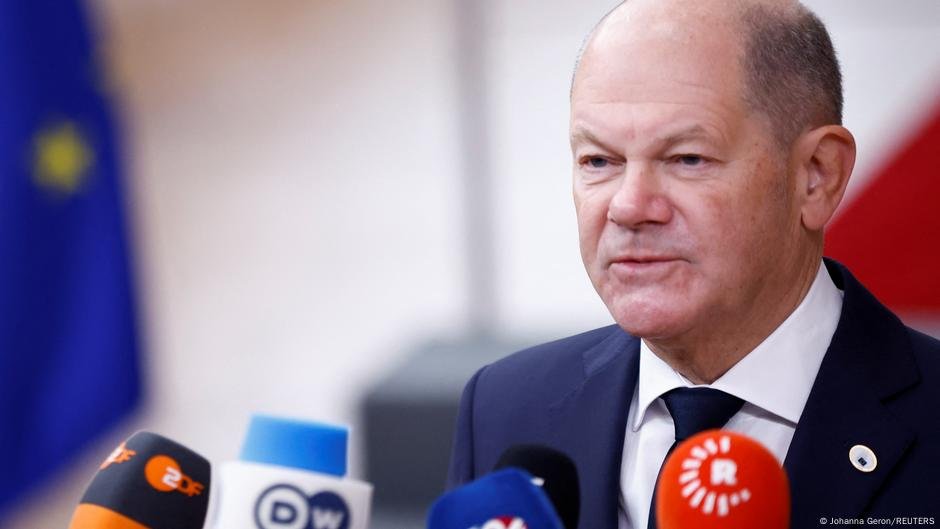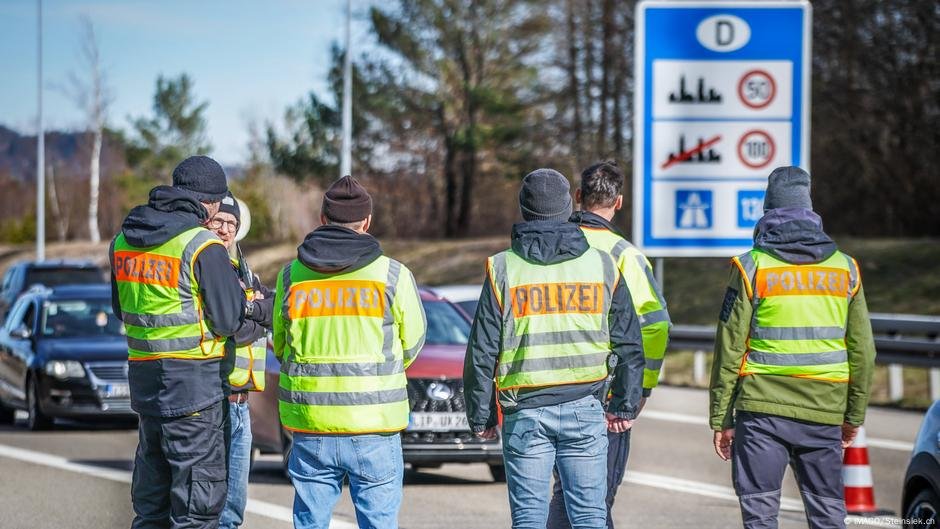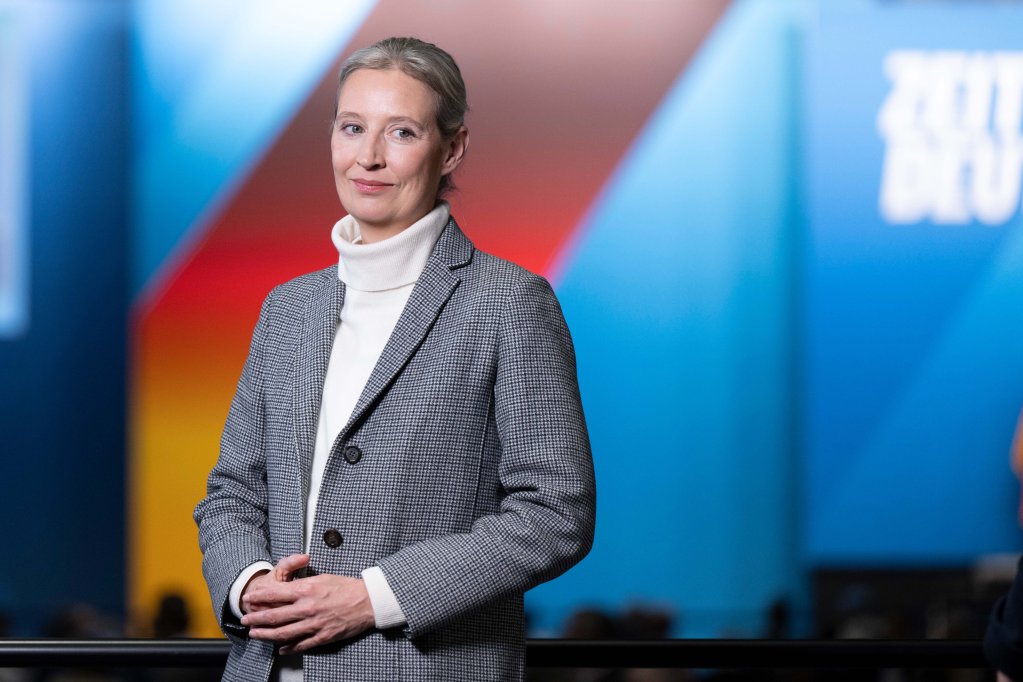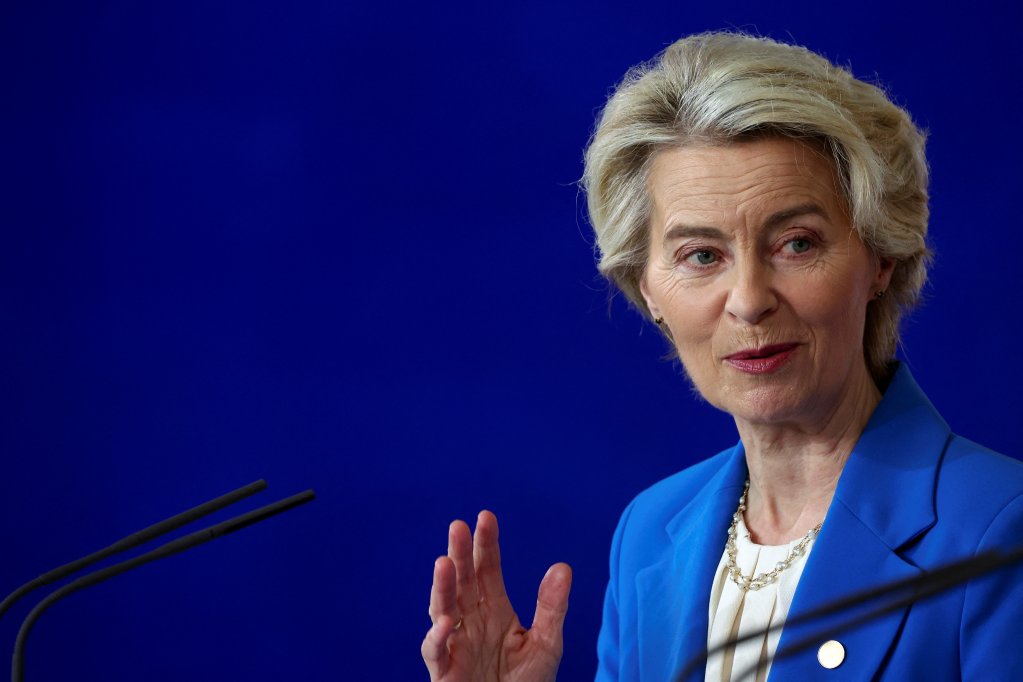Germany's Christian Democrats (CDU/CSU) and Social Democrats (SPD) say they have agreed in principle on details for forming the next government following elections held two weeks ago. This will probably spell major changes for migrants, asylum seekers, refugees and other foreigners coming to the country.
CDU leader Friedrich Merz looks set to become Germany's next chancellor as part of a so-called grand coalition government with the social democrats SPD as its junior partner.
"We concluded the consultations between CDU/CSU and SPD and we have drawn up a joint exploratory paper," Merz told reporters.
With the CDU/CSU block coming out of the election as the biggest winner, any coalition with the SPD going forward is likely to focus greatly on Merz' key election issue: migration.
Read AlsoGermany: Merz pushes for tougher border policies after election win
Progress with grand coalition
CDU-leader Merz highlighted that there had been an "extremely good and very collegial atmosphere" in the initial talks between the two parliamentary factions — especially on the issue of introducing new steps to limit irregular immigration to Germany.
According to Merz, there was even progress between the two parties on the divisive issue of potentially refusing irregular migrants at Germany's borders.
"We want to take all constitutional measures to reduce irregular migration overall," Merz said, stressing that Germany would also "massively expand border controls from the first day of our joint government."

Closing off Germany's borders
This particular plan, however, is regarded as controversial and potentially even illegal at EU level, as closing off Germany's borders goes against the principle of free movement within the bloc's Schengen zone.
Furthermore, it could hinder people from practising their right to lodge asylum claims. Merz, however, says that since all of Germany's neighboring countries are EU members plus Switzerland, asylum seekers should lodge their claims in those countries as part of the EU's Dublin Agreement, which in fact requires potential asylum seekers to make an application in the first EU nation they enter, and tries to guard against them picking and choosing the country in which they might want to settle.
Merz had said earlier that in order to push the effective border closure through, he would announce a state of national emergency, which would allow Germany — at least temporarily — to stop irregular migrants. It is unclear, however, for how long he could justify the emergency measures, as these are audited each time they are up for renewal, which is once every six months.
Read AlsoGermany expands Dublin deportation centers
Asylum: complete change in direction
Merz has also hinted at some other concrete measures he would seek to introduce as chancellor, once the new government stands.
He said, for example that Germany would also seek to "end voluntary admission programs, for example from Afghanistan," and that it "will not launch any new programs" to the same effect.
He also said his new government would suspend family reunification programs for people who are entitled to subsidiary protection only. He did not comment on people with full asylum status or any other status that qualifies as refugee.
In practise, the ban on family reunifications would affect rejected asylum seekers, who cannot be deported because their home country is deemed unsafe, as well as those who have been given subsidiary protection for other reasons, such as a particularly high rate of asylum applications from a particular country.
For example, by the end of 2024, about a third of all Syrian asylum seekers in Germany had been granted subsidiary protection rather than asylum.
Surprisingly, however, Merz has not yet commented on recent reforms introduced to Germany's citizenship laws, which were also part of his rallying cry in the run-up to the election. Merz had announced that he would like to revoke parts of the reformed citizenship law, which came into force last year, particularly the new rules around dual citizenship.
Since the changes were spearheaded by the SPD and its outgoing chancellor, Olaf Scholz, this might remain a sticking point in the fine print of the coalition deal.

Read AlsoGermany: 132 more Afghans arrive via admission programs
Out with the old, in with the new
The newly-elected Bundestag, the lower house of parliament, is going to convene for its first session in two weeks' time.
It is quite unlikely that by that time, the coalition agreement between the CDU/CSU and the SPD will be completely finalized; it is widely expected that the coalition between the CDU/CSU and the SPD will still take about a month to iron out finer details.
However, more details on their arrangement might emerge in the meantime, including which party will be given oversight over certain ministries, and what cross-party subcommittees might be established to address particular issues of concern.
Tough four years ahead for immigrants?
Historically, it is customary that the junior partner is given control over the foreign ministry, which allows the majority partner to run the interior ministry, which includes all departments dealing with different aspects of immigration.
For migrants, this would mean that the tougher stances from the CDU/CSU bloc are likely to dictate the overall direction of the government in immigration matters for the next four years.
However, on major policy issues, which require changes in legislation, the grand coalition could still face stumbling blocks, as certain kinds of decisions require a two-thirds majority in the Bundestag.
Two opposition parties, the Greens and the Left Party, have already announced that they will be unlikely to support the grand coalition in any major changes on immigration policies.
The role of the AfD
Meanwhile, the substantial growth of the far-right AfD (Alternative for Germany) party, which forms the second-biggest party in parliament is also likely to have a certain impact on Germany's overall outlook on migration, asylum and related issues.
The AfD, which hold a strong anti-immigration stance, can either support measures to curb migration or declare them as not far-reaching enough, dragging parliamentary processes further out.

The AfD is yet to declare how exactly it plans to run the parliamentary opposition; however, just prior to the general election held on February 23, the far-right party did side with Merz's CDU/CSU block on a proposal paper presented before the outgoing Bundestag, Germany's lower house of parliament, on immigration issues.
Despite widespread criticism against Merz at the time, for inadvertently wooing the AfD to get his proposal paper through, it would appear that the AfD is keen to work with the next government on limiting immigration, even if the new government's stances might not be far-reaching enough for the AfD's own preferences.
Read AlsoGerman far-right AfD sees historic gains, still out of power
Move to the right across Europe
But it's not just the presence of the AfD in the Bundestag that is pushing German politics further to the right. Many EU member states are currently under right-wing governments focused on limiting immigration, and the European Union as a whole is also trying to shift its direction on the matter.
European Commission President Ursula von der Leyen announced at the weekend that the bloc would like introduce new EU legislation to ban certain migrants from the bloc for at least ten years, with certain bans potentially even lasting longer.
This would extend, among others, to migrants who previously have been deported from the European Union, people who have committed serious crimes while awaiting the outcome of their asylum process, or those who are hiding to avoid deportation being carried out.
The European Commission intends to start processing a proposal on these suggestions this week.

Read AlsoHow Germany's election may shape migration in the entire EU
Last-ditch efforts to avoid changes
Before any major changes can take place at the legislative level, many foreigners in Germany are reportedly trying their best to escape any impending negative consequences.
A migrant charity worker in the northern German town of Norderstedt told the AFP news agency that many asylum seekers awaiting a decision feel that they are now facing a "race against time."
In a bid to boost their chances of being allowed to stay, many "are trying to get their qualifications recognized and to improve their language skills," she added, while also highlighting that Germany's significant skilled labor shortage could mean that the incoming government might be shooting itself in the foot by limiting immigration.
However, immigration was the biggest issue in this election, and the election result itself highlights that there are no clear winners in this divided political landscape, with no single party gaining more than 28.5 percent of the votes.
Compared to previous elections, this is a poor showing, especially for the traditional parties.
Read AlsoHow will the German election result impact African migrants?
with AFP, dpa
